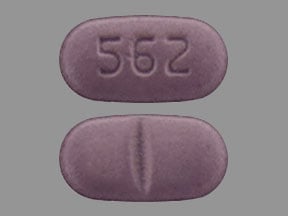
Colcrys Coupons & Savings Card – Discount Prices from $11.18
Brand for: Colchicine
My prescription
Edit
0.6MG, Colchicine (30 Tablets)
Select pharmacy

CVS
$19.54
COUPON PRICE
Walmart
$11.18
COUPON PRICE
Walgreens
$13.98
COUPON PRICE
Albertsons
$18.85
COUPON PRICEColcrys savings card
Show this card to your pharmacist
Walmart
$11.18
BIN
ID
PCN
GRP
019876
LH05B19FB3
CHIPPO
LHX
Powered by
Related colchicum alkaloids prescriptions
More prescriptions for gout
Related colchicum alkaloids prescriptions
More prescriptions for gout
Colcrys (Colchicine) dosage forms
Dosage Quantity Price from Per unit 0.6MG 30 Tablets $11.18 $0.37 0.6MG 3 Tablets $3.37 $1.12 0.6MG 60 Tablets $18.96 $0.32 0.6MG 90 Tablets $26.55 $0.29 0.6MG 180 Tablets $33.72 $0.19
| Dosage | Quantity | Price from | Per unit |
|---|---|---|---|
| 0.6MG | 30 Tablets | $11.18 | $0.37 |
| 0.6MG | 3 Tablets | $3.37 | $1.12 |
| 0.6MG | 60 Tablets | $18.96 | $0.32 |
| 0.6MG | 90 Tablets | $26.55 | $0.29 |
| 0.6MG | 180 Tablets | $33.72 | $0.19 |
Colcrys Warnings
This document outlines critical safety information regarding the use of colchicine. It is important to understand the potential risks and take necessary precautions. If you have any concerns, consult your healthcare provider.
Life-threatening Overdose: Overdoses of colchicine, whether accidental or intentional, can be fatal for both adults and children. Adhere strictly to your healthcare provider's dosage instructions. Store colchicine out of children's reach. Early overdose signs include abdominal pain, nausea, vomiting, and diarrhea, which may lead to dehydration. If an overdose is suspected, immediately contact the Poison Control Center at 1-800-222-1222 or seek emergency medical assistance.
Blood Disorders: Colchicine may impair the production of new blood cells, even when taken at recommended doses. This can be severe if not detected early. Ensure regular laboratory tests are conducted and promptly report symptoms such as unexplained bleeding, bruising, persistent fevers, or unusual fatigue to your healthcare provider.
Drug and Food Interactions: Colchicine can interact with various medications, potentially increasing its levels to dangerous extents. Notable interacting drugs include calcium channel blockers (CCBs), digoxin (Lanoxin), statins, antifungal medications, HIV protease inhibitors, and cyclosporine (Neoral or Sandimmune). Provide your healthcare provider with a comprehensive list of all medications you are taking, even if colchicine is used sporadically. Dosage adjustments may be necessary if interactions are identified.
Nerve or Muscle Toxicity: Prolonged use of colchicine can lead to nerve or muscle toxicity, and in some cases, rhabdomyolysis, a condition where damaged muscle tissue releases harmful proteins into the blood. This risk increases with concurrent use of statins, fibrates, or cyclosporine (Neoral or Sandimmune), as well as in older adults or those with compromised kidney function. Seek medical attention if you experience muscle pain, dark or reddish urine, or difficulty in moving limbs. Discontinuation of colchicine may be required, with symptoms typically resolving within a week, although recovery can occasionally take several months.
Contraindications: Colchicine should not be used in individuals with kidney or liver disease who are also taking interacting medications due to the risk of serious health complications. Consult your healthcare provider for guidance if these conditions apply to you.
Colcrys Side Effects
When taking this medication, some common side effects you might experience include diarrhea and nausea, which are usually mild. However, if these symptoms persist or worsen, it's important to reach out to your healthcare provider for advice. Other possible side effects include tiredness, headaches, and throat pain. While these are less common, you should consult your healthcare provider if they become troublesome. It's crucial to be aware of more serious side effects, which, although rare, require immediate medical attention. These include signs of an allergic reaction such as rash, itching, hives, swelling of the face, lips, tongue, or throat, and difficulty breathing. Additionally, be vigilant for signs of infection, like persistent sore throat, fever, or chills, and any unusual weakness or muscle pain, which could indicate a muscle injury. Look out for unusual bleeding or bruising, or changes in urine output, as these could signal more severe issues. If you notice symptoms such as numbness or tingling in the hands or feet, fast heartbeat, or shortness of breath, seek medical help promptly. These symptoms could be indicative of serious underlying conditions. Monitoring your health while on this medication is important, and should any unfamiliar side effects arise, contact your healthcare provider for guidance.
Colcrys Interactions
What is Colcrys used for?
Colcrys is used to treat and prevent gout attacks. It is also used to treat familial Mediterranean fever (FMF) in adults and children aged 4 years and older.
Using the SaveHealth discount card, what is the price of Colcrys without insurance?
Using the SaveHealth discount card, the price of Colcrys without insurance is $11.18.
What is the price of Colcrys at CVS?
The price of Colcrys at CVS is $19.54.
What is the price of Colcrys at Walgreens?
The price of Colcrys at Walgreens is $13.98.
What is the price of Colcrys at Walmart?
The price of Colcrys at Walmart is $11.18.
